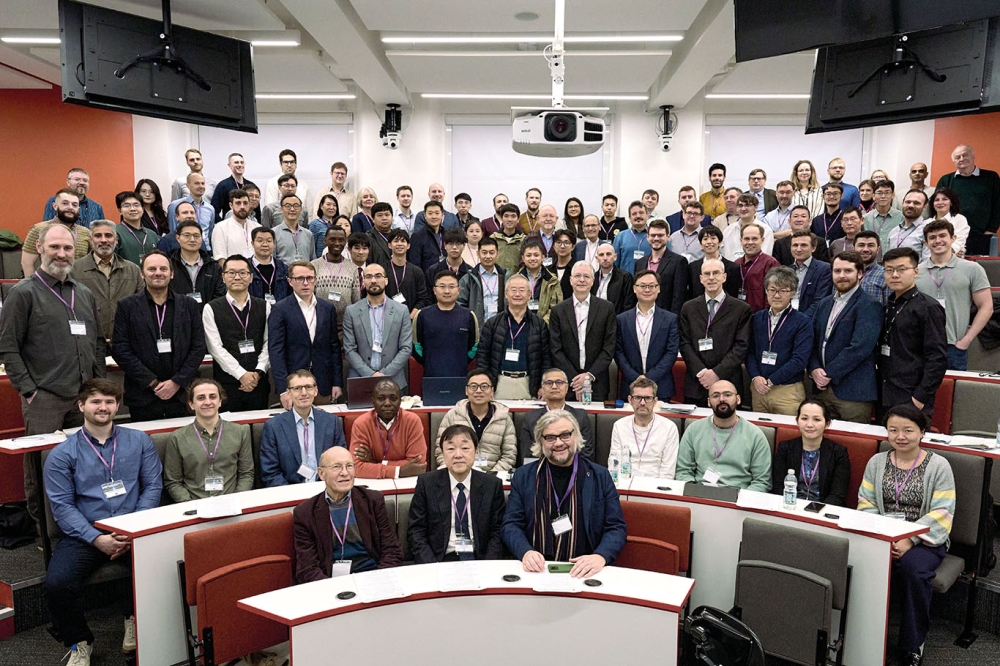Industry Reader Comment
![]()
I am a researcher at Uppsala University in Sweden. In the Solid State Electronics division we are doing research on aluminum nitride piezoelectrics, silicon and silicon carbide RF and power electronics and thin film solar cells. Personally I am involved in the solar cell research where we traditionally focus on Cu(In,Ga)Se2 and related materials, combined with zinc oxide and cadmium sulfide to form the complete device. I wrote my PhD thesis on silicon carbide power electronics.
The compound semiconductor industry has been regarded as an emerging sector for a number of years but there is a sense that this may change.
“Well I think a major problem with industry and predictions in our time is the limited time frame. The only thing which really seems to matter is the quarterly report and ever increasing increases of revenue. Then comes a tough year caused by professional gambling on the finance market where the connection between a company's performance and the corresponding share values has long been lost and everyone is talking of a decline. I don't think that the view of a collective "compound semiconductor industry" is valid anymore. A couple of years ago, the only major business within compound semiconductors were GaAs RF transistors, small indicator LEDs and perhaps some laser diodes and fiber-optic transmitters/receivers. But now you have "compound semiconductors" everywhere: LED lighting, flat-screen displays, multimedia players, power electronics, solar cells.
Will Compound Semiconductor remain a niche industry?
I don't think that it is a viable approach to put all "Compound Semiconductor" business under one roof anymore - the applications and markets have become too diverse. Soon it will not really matter anymore, if a power transistor in a power supply or an electric car is made of silicon, silicon carbide or gallium nitride. Not for the engineer who constructs the electronic circuit - but of course the compound semiconductor transistors will perform superior to their silicon cousins.
Cost of materials has always been a concern in this sector. What ways do you see the industry driving down cost and are there areas that you feel could be improved in cost savings?
Some of the base materials in our business are scarce and will remain expensive. But with the growing industry also the market for refined base materials will grow and reduce cost. Also manufacturing methods will improve further and be more efficient in materials and machine utilization. Take high-brightness LEDs for example - we have come from costly and slow MBE to MOCVD processes, chip sizes have shrunk and wafer sizes gone up. However, it also seems that industry - because of the short-sighted quarterly planning - has lost at least some of its interest in driving R&D forward lately.
What areas of application do you believe will be the most successful for the CS industry?
LED lighting and solar cells.
While recognizing that no-one has a crystal ball, where do you see the industry in three years time? Five years time? Ten years time?
If the industry itself is not willing to invest and look beyond quarterly reports I will not either.
What areas of microelectronics do you believe will only be addressed by Compound Semiconductors?
Electronic power devices, lighting LEDs and solar cells are devices with square-millimetre dimensions while modern processors are going towards nanometre dimensions. There is no "micro" anymore. I do not see III-V or II-VI materials in microprocessors or similar devices in the near future at least.
What issues do you believe are important for this industry and market sector? Based on your company and you personal perspective?
Upcoming issues with the massive spreading of LEDs for lighting and of solar cells will be the issue of recycling, especially with the background of the scarcity of some of the basic chemical elements (In, Ga) and the possible environmental impact of others (As, P, Sb, Se, Te). I assume that industry should try to focus on recyclable devices - especially with regard to the packaging.
Uwe Zimmermann, PhD
Thin Film Solar Cell Group
The Ångström Laboratory
Uppsala University
Uppsala, SWEDEN
This comment represents Uwe Zimmermann personal view, and not necessarily the views of Uppsala University.
If you would like to submit your reader comments on the Compound Semiconductor industry please e mail to vinny@angelbc.co.uk































